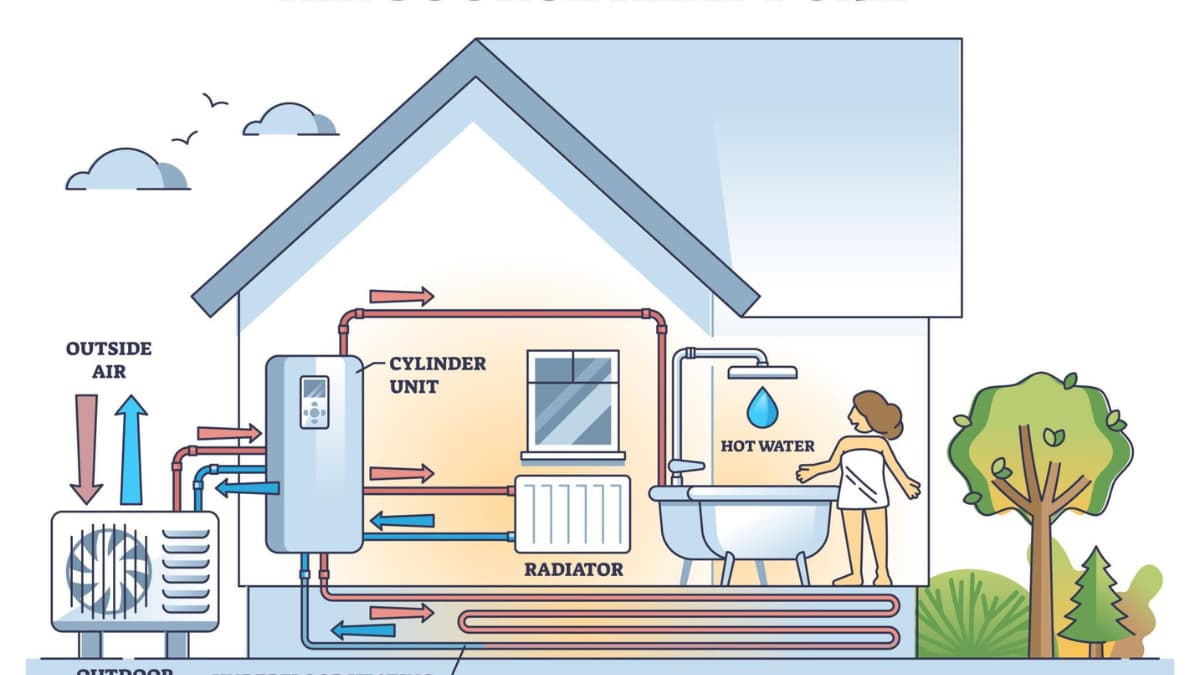Gas engineers are crucial to ensuring homes and businesses operate safely and efficiently. Whether they are installing boilers, checking appliances or responding to breakdowns, these skilled professionals play a key role across the country. If you’re practical, hands-on and looking for a trade that offers long-term prospects, becoming a gas engineer could be a great choice.
At Staffordshire Training Services, we work with people at every stage of their journey. If you’re starting or considering retraining, this will provide you with a clear understanding of the job, the training involved, and the potential career path it can lead to.
What Gas Engineers Do Day To Day
The work is varied, hands-on, and focused on problem-solving. A gas engineer’s day often involves travelling between jobs, working with different appliances and speaking with customers. It’s a trade where every day feels a bit different.
Typical daily tasks include:
- Installing and servicing boilers, cookers and heating systems
- Diagnosing faults and carrying out repairs
- Carrying out safety checks and pressure testing
- Advising customers on appliance use and energy efficiency
- Completing certificates and compliance records
Most of the work is practical, but there is also a strong focus on safety and professionalism. You’ll be working with tools, technology and people.
Where Gas Engineers Work
Gas engineers can be found across a range of different locations. This might include:
- Homes and rental properties
- Offices, schools, shops and restaurants
- Rural and off-grid areas using LPG
- New-build developments or renovation projects
You might start out in domestic work but choose to specialise later on. Some engineers focus on commercial gas systems, others move into renewables or smart home technology. It’s a flexible trade with ample room for growth.
Training, Tools and Skills Needed
To become a gas engineer, you’ll need proper training and recognised qualifications. This is a safety-critical trade, so practical skills and knowledge are both essential.
Important skills for gas engineers include:
- Confidence using tools and testing equipment
- A good understanding of safety rules and legal standards
- Strong problem-solving abilities
- The ability to work independently
- Clear and professional communication with customers
You will also need an approved gas training programme to work towards your ACS certification, which is the industry-standard qualification. Once you have passed your ACS, you can register with Gas Safe, which is required by law to carry out gas work in the UK.
The Gas Managed Learning Programme (MLP)
For anyone new to the industry, the Gas Managed Learning Programme (MLP) is the most direct and accessible route into the trade.
Our MLP course at Staffordshire Training Services is designed to support learners from all backgrounds, including those with no previous experience in the gas or plumbing sector.
The programme is:
- Accredited by LCL Awards
- A recognised route to ACS assessment and Gas Safe registration
- Delivered by qualified engineers and experienced trainers
You’ll develop practical skills and core knowledge in areas such as:
- Health and safety in gas work
- Combustion and ventilation
- Pressure testing and pipework installation
- Heating design and system controls
- Servicing and installation of domestic heating appliances
You’ll also complete supervised work experience, where you will build a digital portfolio to show your development in real jobs. This helps bridge the gap between the classroom and the workplace.
The course is taught at our fully-equipped training centre in Stafford, with flexible support to help you succeed. Once you have passed the course and gained enough on-the-job experience, you’ll be ready to sit your ACS assessment and take the next step in your gas career.
Earning Potential And Job Security
Gas engineers remain in strong demand across the UK. Whether working for a company or as a self-employed tradesperson, the earning potential is attractive and consistent.
Typical salaries include:
- Trainee or apprentice: £14,000 to £20,000
- Qualified engineer: £30,000 to £45,000
- Specialist or self-employed engineer: £50,000 plus
Gas systems remain a significant part of homes and businesses. With new technologies such as hydrogen-ready boilers and hybrid heating systems, gas engineers are also playing a key role in shaping the future of low-carbon home energy. Job security is strong, and opportunities to retrain or upskill are always available.
Would This Trade Suit You
Gas engineering is a great fit for individuals who enjoy practical work, achieving clear results, and meeting new people. It’s a respected trade with solid pay and real independence.
You might enjoy this career if you:
- Prefer working with your hands rather than sitting at a desk
- Like learning how things work and fixing problems
- Can work safely and follow clear procedures
- Enjoy variety and moving between different jobs and locations
- Want a stable job with a future
There is no need to have it all figured out at the start. With the proper training and support, you can build a career that’s both rewarding and future-proof.
Start Your Journey With Staffordshire Training Services
We deliver accredited gas training at our purpose-built training centre in Stafford, led by experienced professionals who understand what it takes to succeed in the trade. Our courses are built for real-world success, with a strong focus on safety, confidence and hands-on learning.
Whether you’re just starting, changing careers or coming back into the trade, our team is here to help.
Take a look at our Gas Managed Learning Programme or speak to us today to plan your next step into gas engineering.
Related Articles
- Start Training As a Gas Engineer
- Is Gas Engineer Career Still Worth It
- Starting Out with the Gas Managed Learning Programme
- Inside the Level 3 Gas Engineering Apprenticeship
- Your First Year as a Gas Engineer: What to Expect
Prefer an AI Summary?



